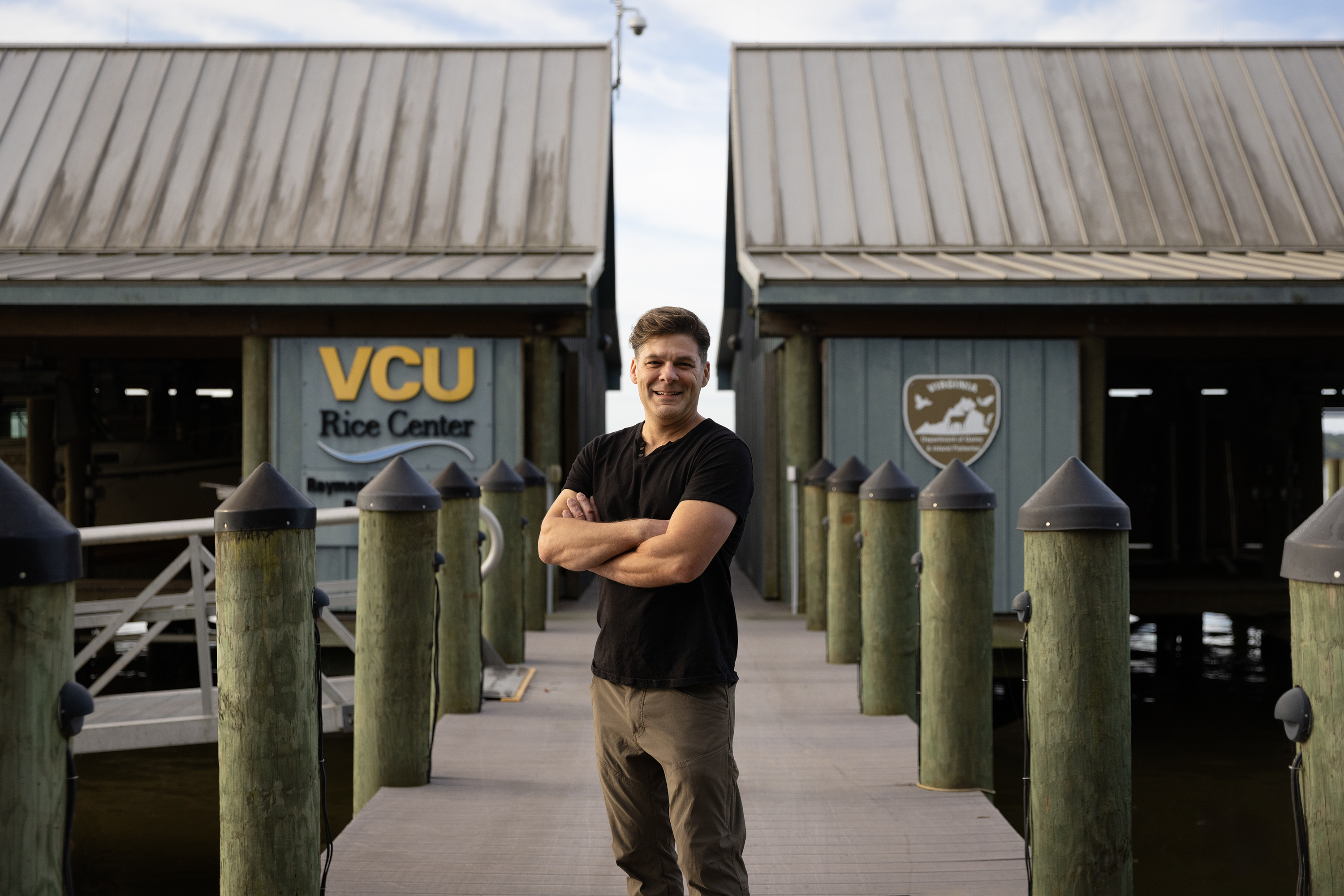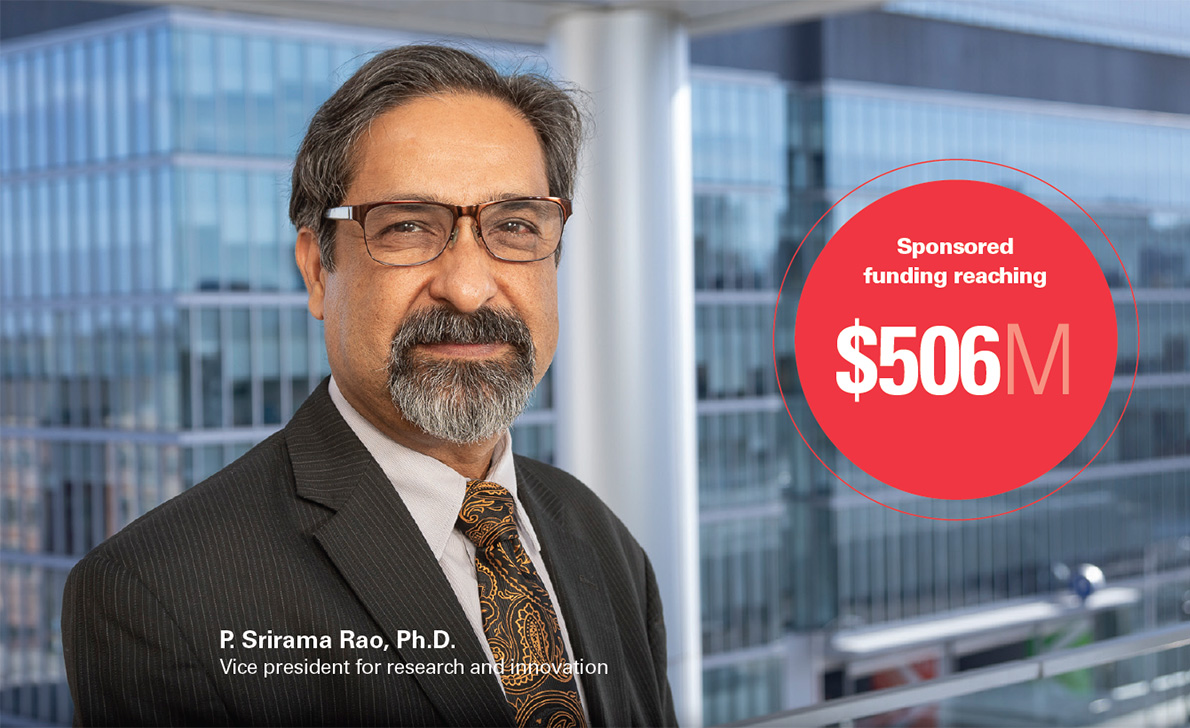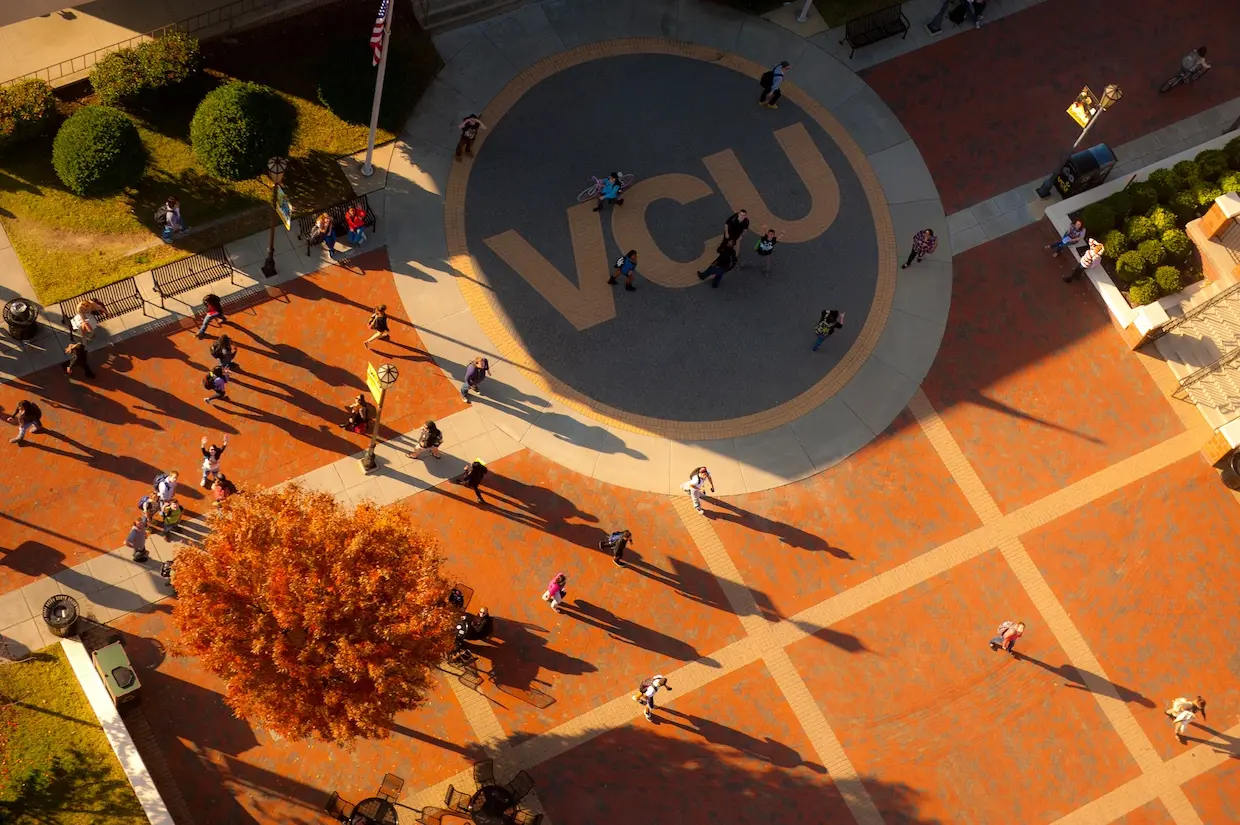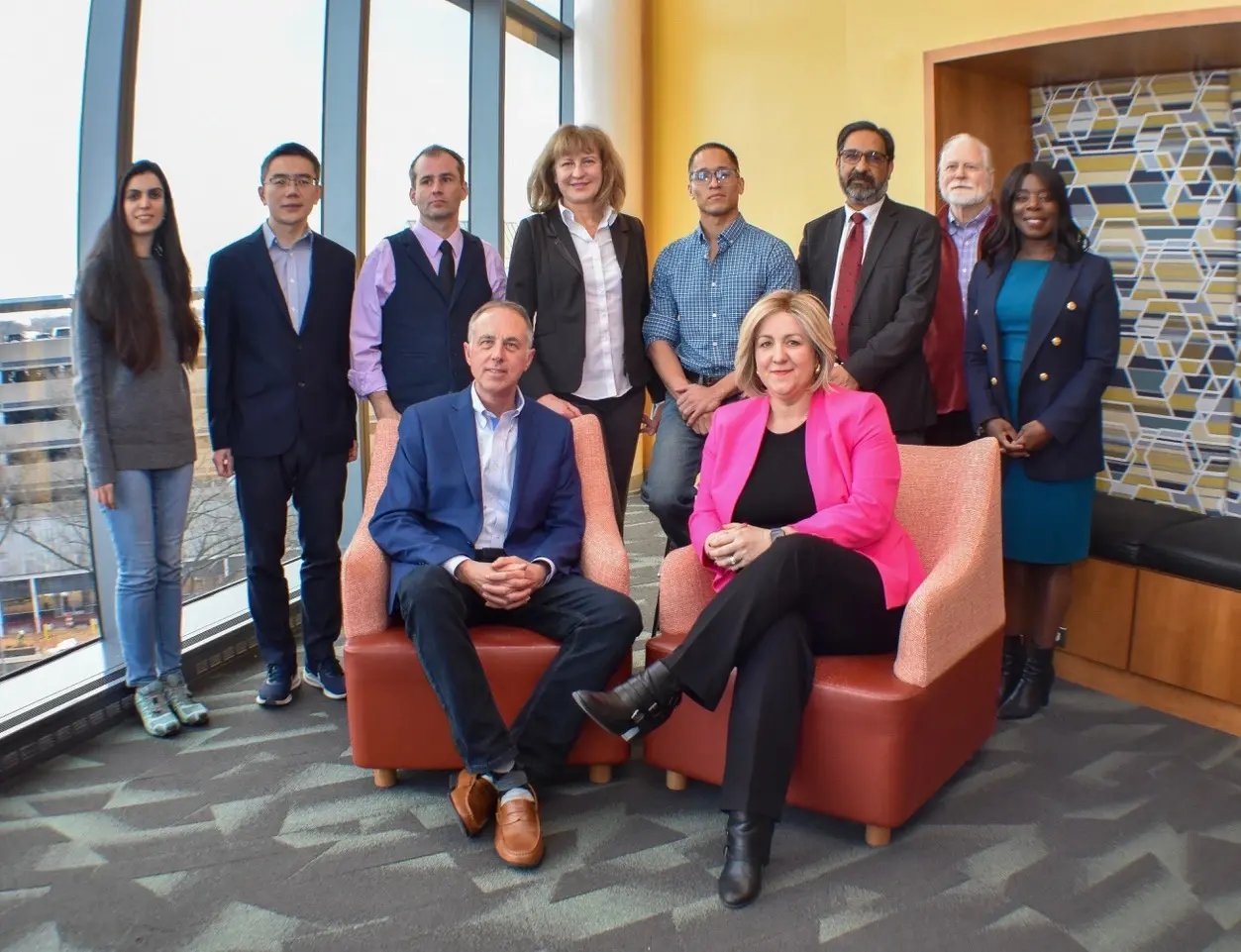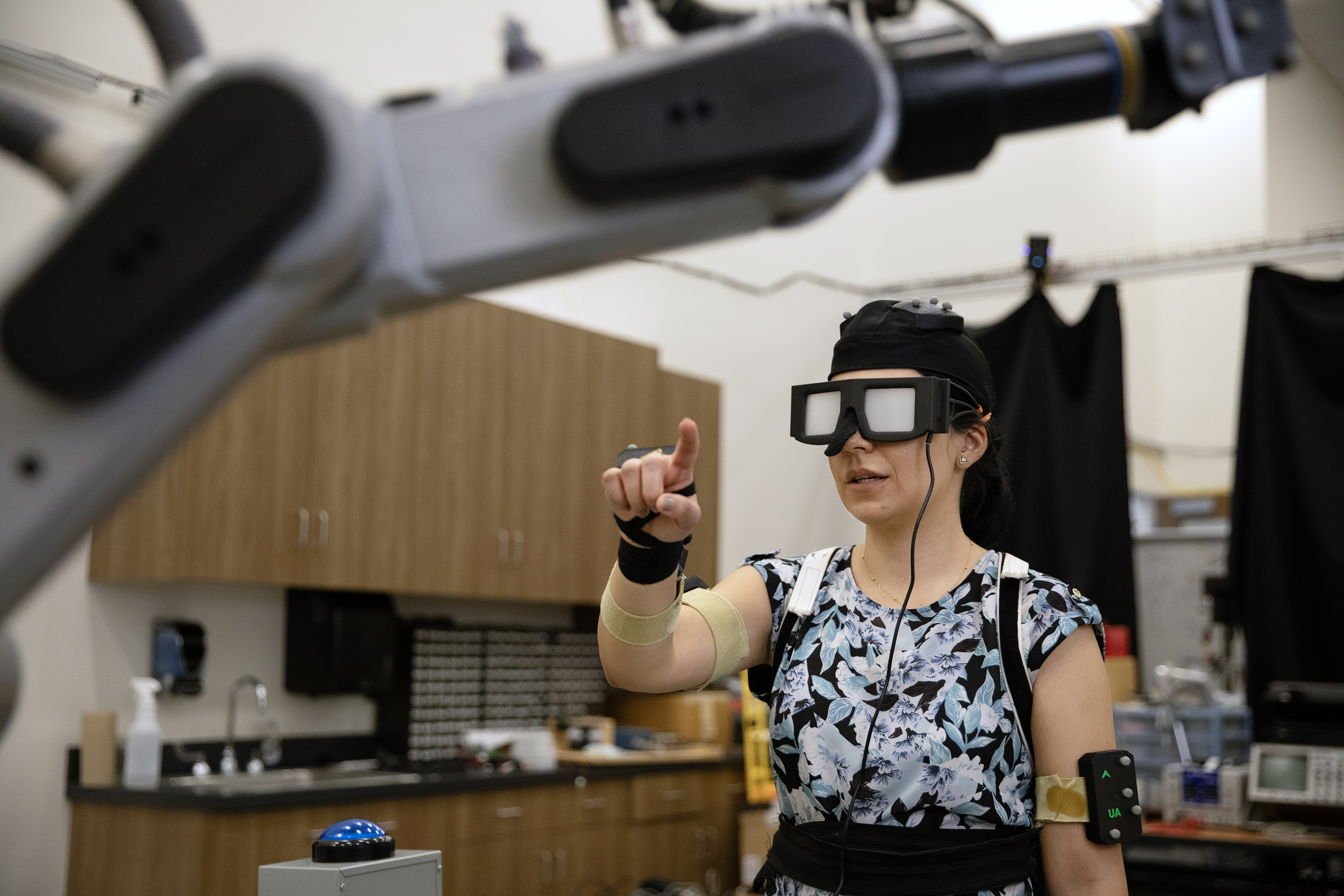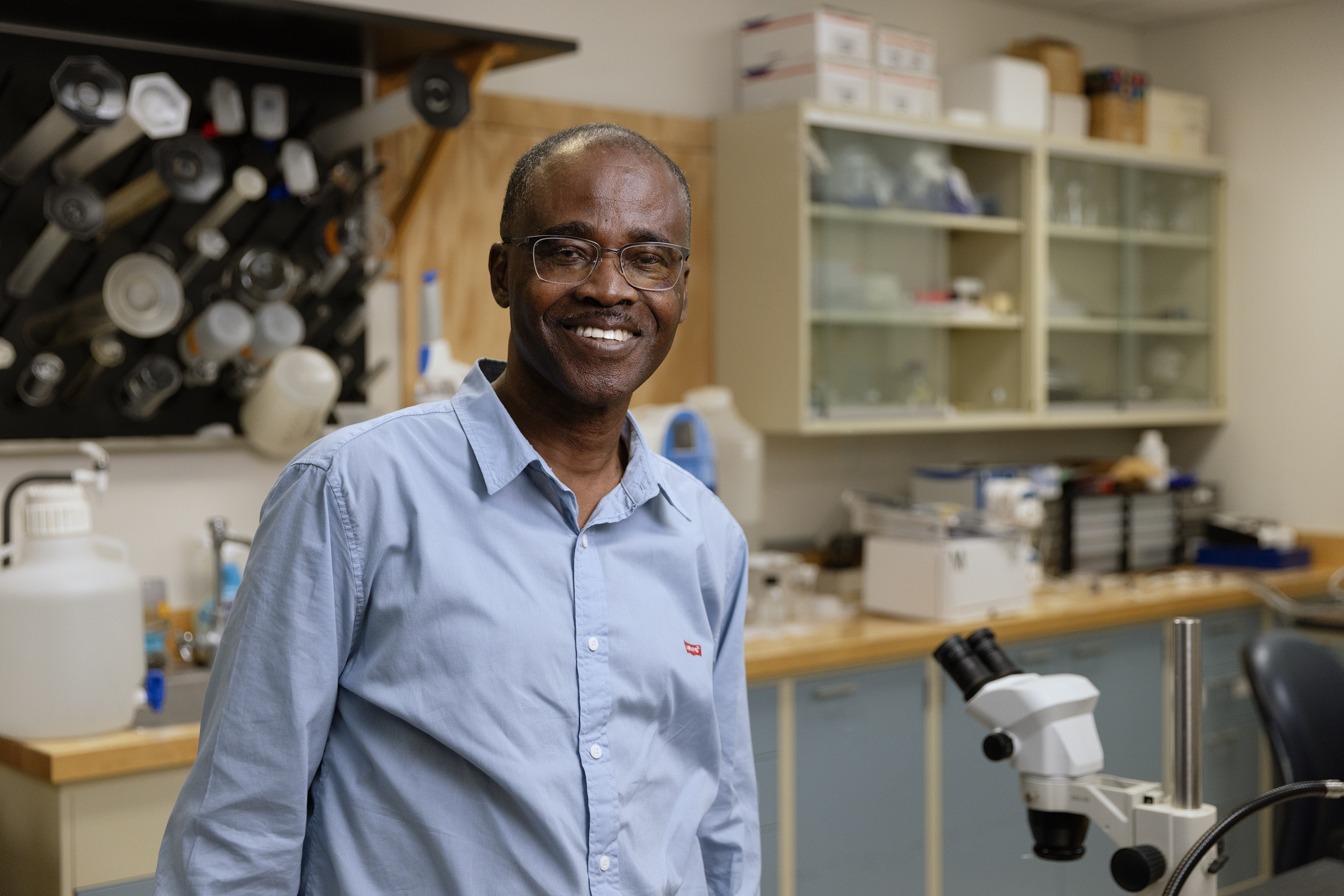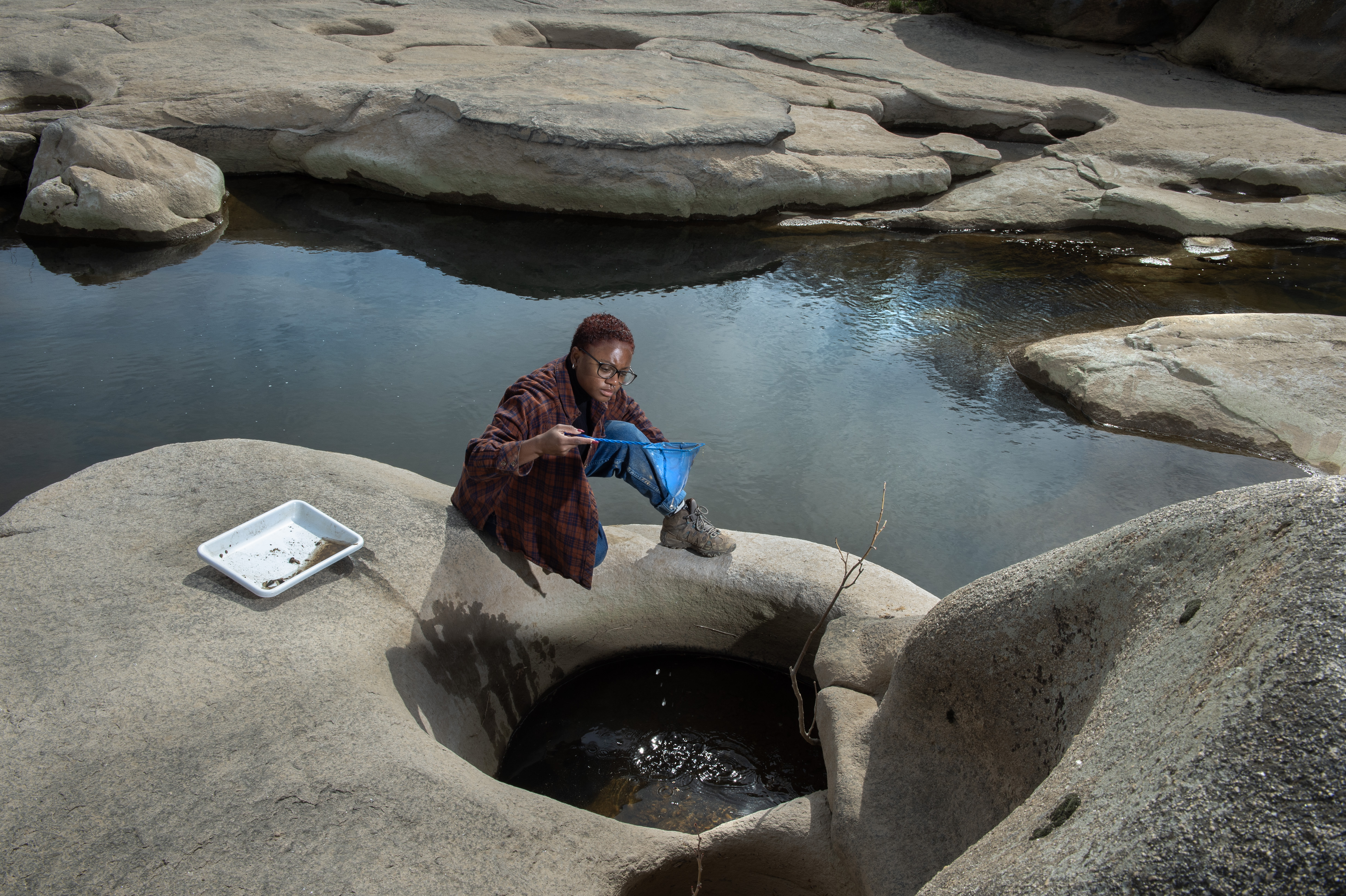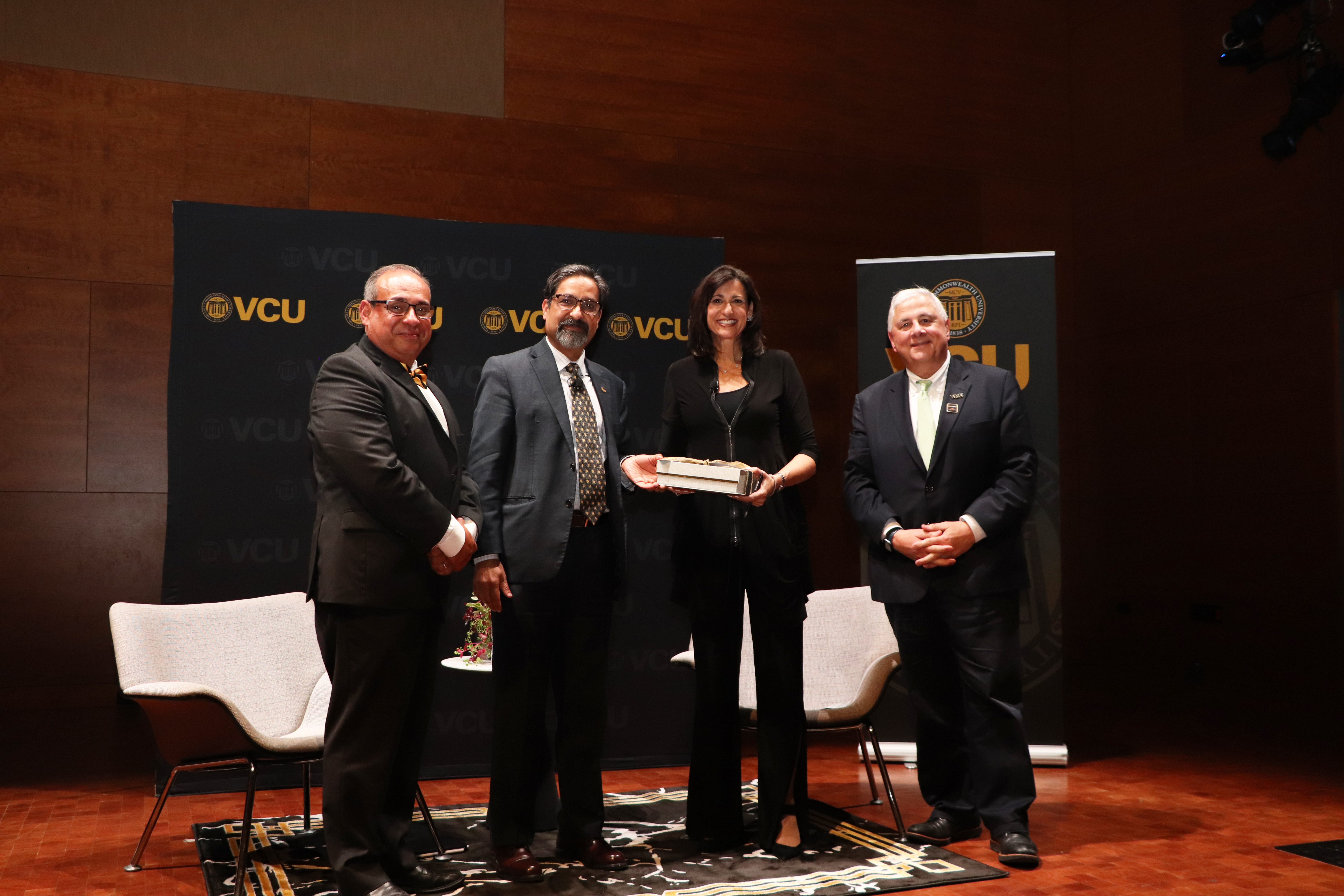Data gathered at Rice Rivers Center provides new insight into how ecosystems respond to climate change
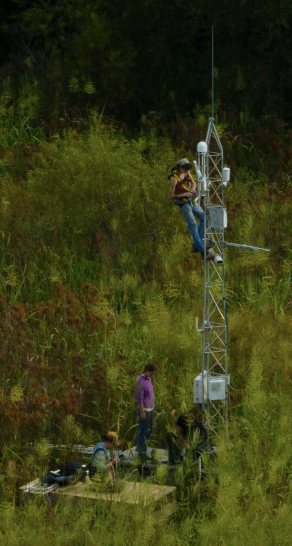 Christopher Gough, Ph.D., an associate professor in the Department of Biology in the College of Humanities and Sciences, is leading a project at VCU Rice Rivers Center that will collect data on methane and carbon dioxide emissions. The “flux tower” collects data in real-time and is publicly available for researchers across the country, providing them with a valuable resource to study climate change. By analyzing how these emissions vary with environmental conditions, researchers can better understand the role of wetlands in the global carbon cycle and develop strategies to diminish climate change leading to future interventions and informed policy to mitigate climate change and protect wetland ecosystems. Hear from Dr. Gough and visit VCU’s Rice Rivers Center to learn more about the flux tower.
Christopher Gough, Ph.D., an associate professor in the Department of Biology in the College of Humanities and Sciences, is leading a project at VCU Rice Rivers Center that will collect data on methane and carbon dioxide emissions. The “flux tower” collects data in real-time and is publicly available for researchers across the country, providing them with a valuable resource to study climate change. By analyzing how these emissions vary with environmental conditions, researchers can better understand the role of wetlands in the global carbon cycle and develop strategies to diminish climate change leading to future interventions and informed policy to mitigate climate change and protect wetland ecosystems. Hear from Dr. Gough and visit VCU’s Rice Rivers Center to learn more about the flux tower.
Wetlands are both part of the solution to climate change, they consume carbon by pulling it out of the atmosphere, but they also emit methane and … warm the atmosphere.
Supporting Endangered Atlantic Sturgeon in the Chesapeake Bay
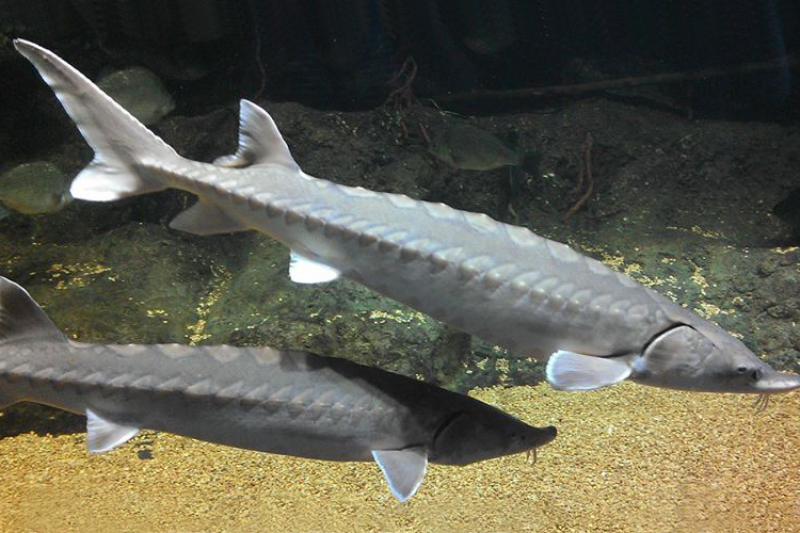 Matt Balazik, Ph.D., research faculty at VCU Rice Rivers Center, is researching the current Atlantic sturgeon population in the James River. Although the adult sturgeon population seems healthy, there is a concerning lack of juvenile sturgeon.
Matt Balazik, Ph.D., research faculty at VCU Rice Rivers Center, is researching the current Atlantic sturgeon population in the James River. Although the adult sturgeon population seems healthy, there is a concerning lack of juvenile sturgeon.
Balazik and team are investigating potential causes for this decline, and found that it could be due to blue catfish predators, habitat loss and overall water quality issues. Their work aims to understand why the sturgeon population isn't rebounding quickly and strategies for their protection, which will lead to a broader understanding of the Atlantic sturgeon and identify effective plans to protect this endangered species.
Barrier islands and dunes protect our coastline – but how are environmental changes affecting them and adjacent land?
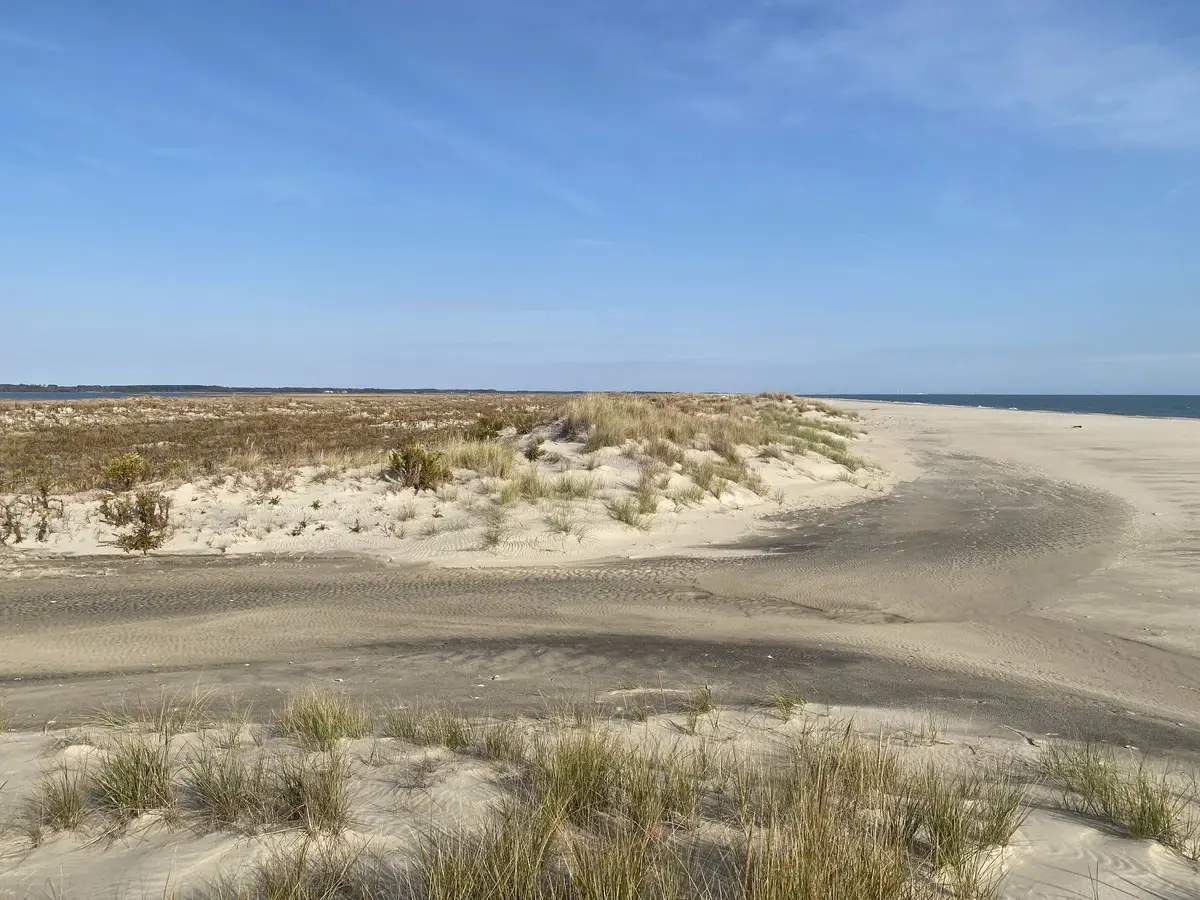 Julie Zinnert, Ph.D., an associate professor in the Department of Biology in the College of Humanities and Sciences, is studying the impact of dune dynamics on the ecosystems of Virginia's barrier islands.
Julie Zinnert, Ph.D., an associate professor in the Department of Biology in the College of Humanities and Sciences, is studying the impact of dune dynamics on the ecosystems of Virginia's barrier islands.
Zinnert and team found that higher dunes protect inland habitats from disturbances like flooding and erosion and affects the overall health of the island ecosystem. The team’s research provides valuable insights for predicting how barrier islands will respond to climate change and the sea levels rising.
Hotter weather caused by climate change could mean more mosquitos, according to VCU-led study
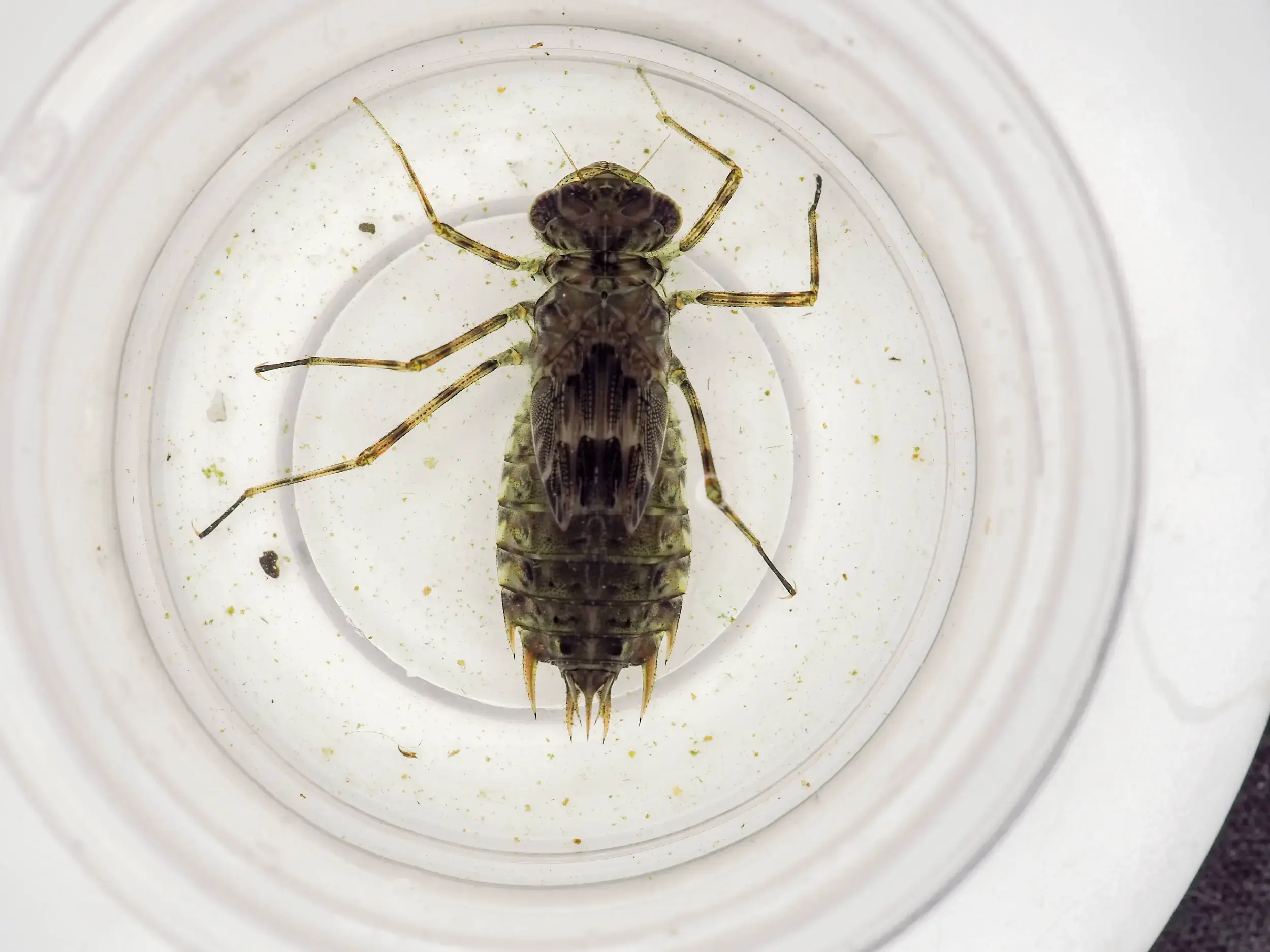 A study led by Virginia Commonwealth University researchers, published in Ecology, found that rising temperatures reduce the effectiveness of mosquito predators, like dragonfly nymphs, leading to increased mosquito populations.
A study led by Virginia Commonwealth University researchers, published in Ecology, found that rising temperatures reduce the effectiveness of mosquito predators, like dragonfly nymphs, leading to increased mosquito populations.
Warmer environments accelerate mosquito larvae development, narrowing the time predators can control them. The study, conducted in riverine rock pools at Belle Isle, showed more mosquito larvae in warmer pools despite predator presence. This study can inform policy decisions related to habitat management, conservation efforts, and climate adaptation strategies to mitigate negative impacts on ecosystems.
VCU co-author of ‘A Darwinian Survival Guide’ reframes climate change – and the paths forward – through the lens of evolution
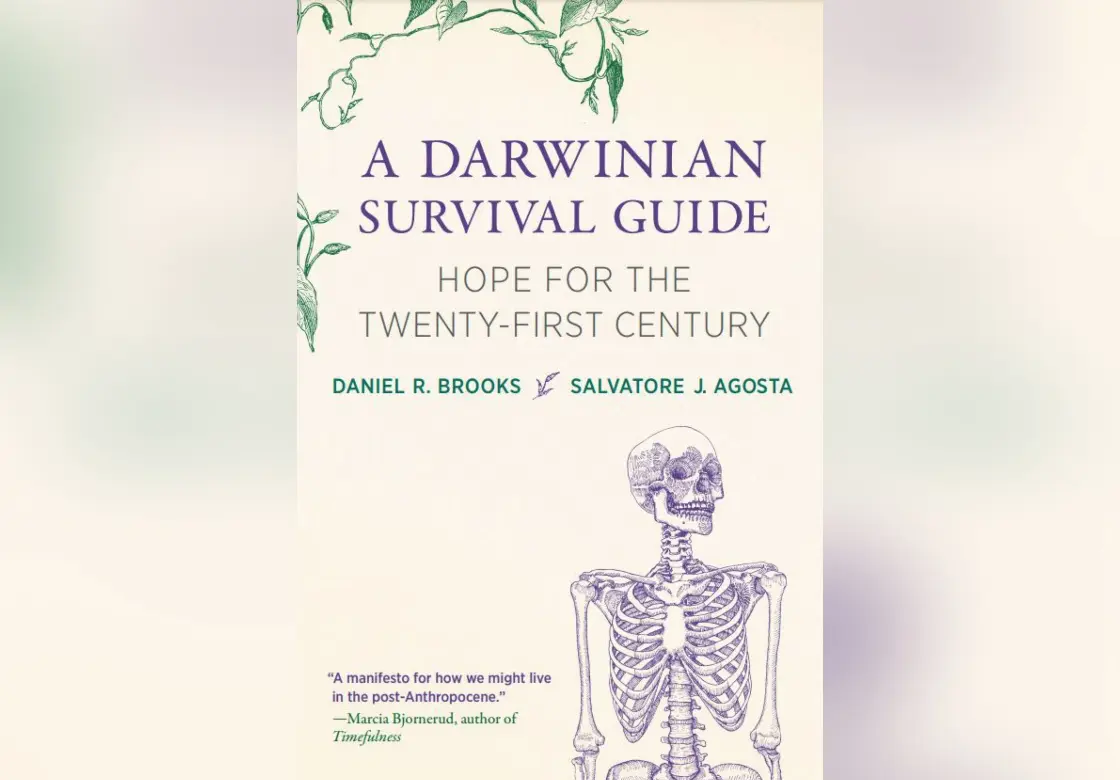 "A Darwinian Survival Guide: Hope for the Twenty-First Century," co-authored by VCU professor Salvatore Agosta, Ph.D., and Daniel R. Brooks, Ph.D., reframes climate change through evolutionary principles. The book argues that humanity veered from its evolutionary path 15,000 years ago, leading to the current climate crisis.
"A Darwinian Survival Guide: Hope for the Twenty-First Century," co-authored by VCU professor Salvatore Agosta, Ph.D., and Daniel R. Brooks, Ph.D., reframes climate change through evolutionary principles. The book argues that humanity veered from its evolutionary path 15,000 years ago, leading to the current climate crisis.
Agosta and Brooks propose that embracing Darwinian principles—coping with change by changing—can help avert the worst outcomes. Their book aims to urge society to apply evolutionary principles to climate strategies, offering new approaches to coping with environmental changes, emphasizing adaptability and resilience.
